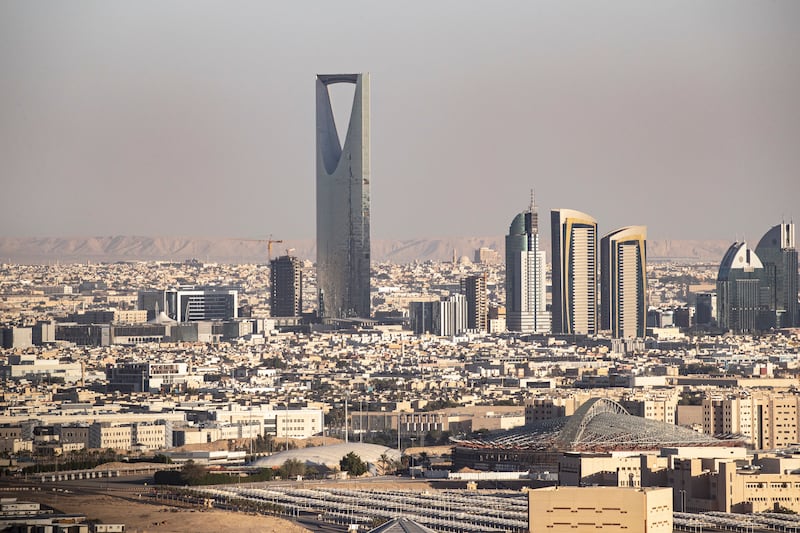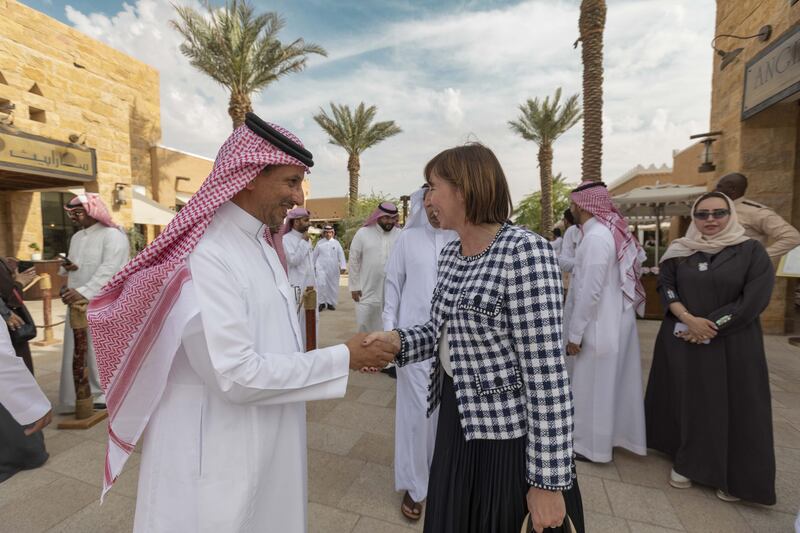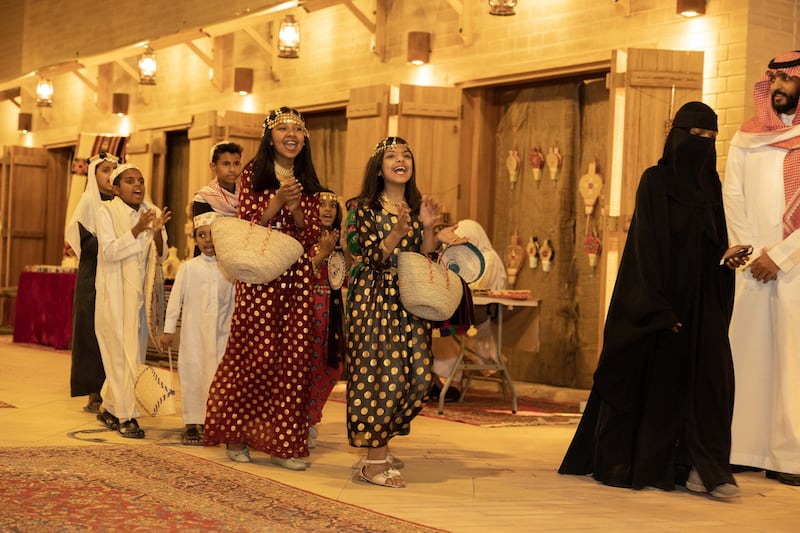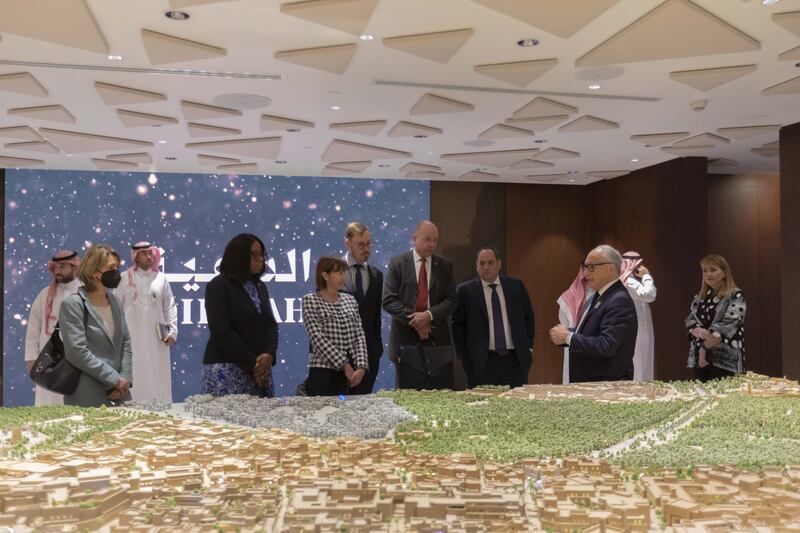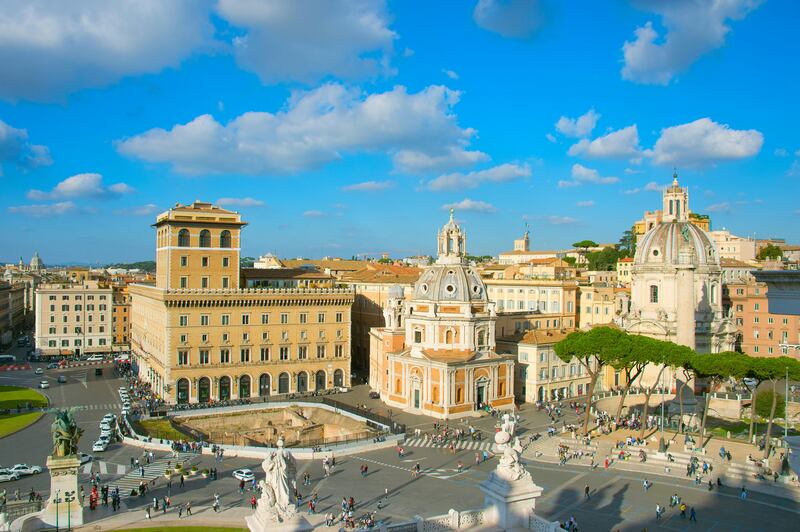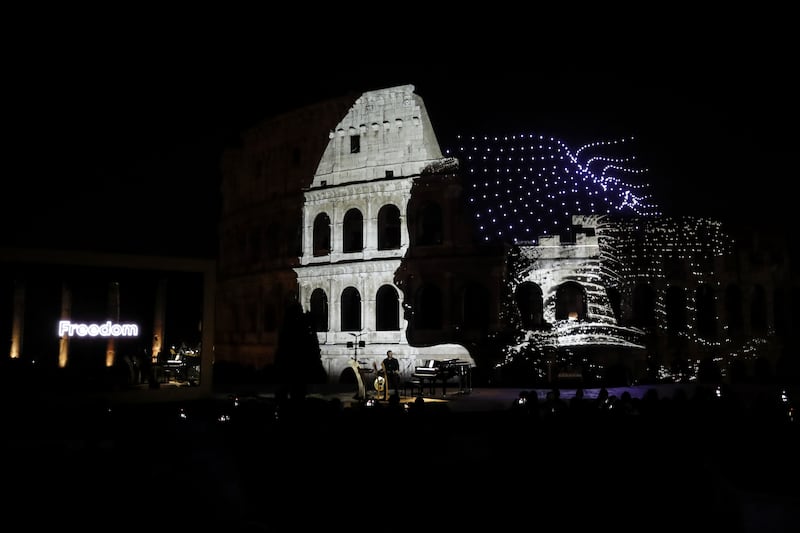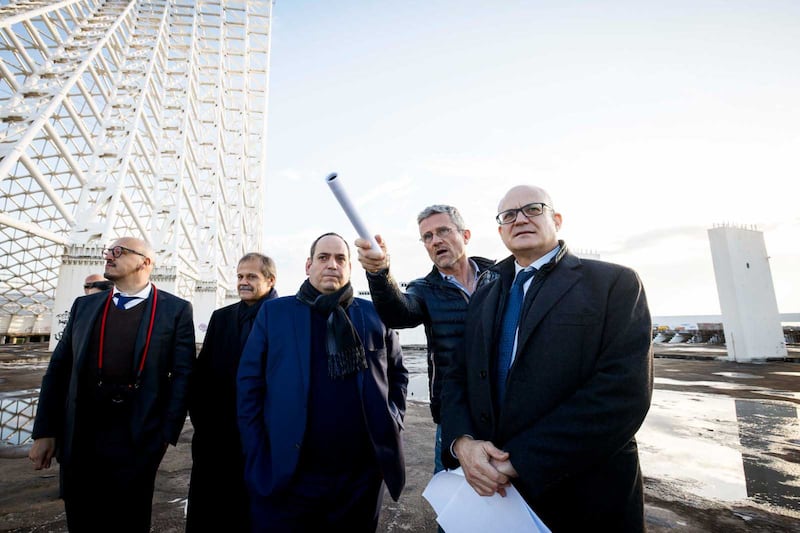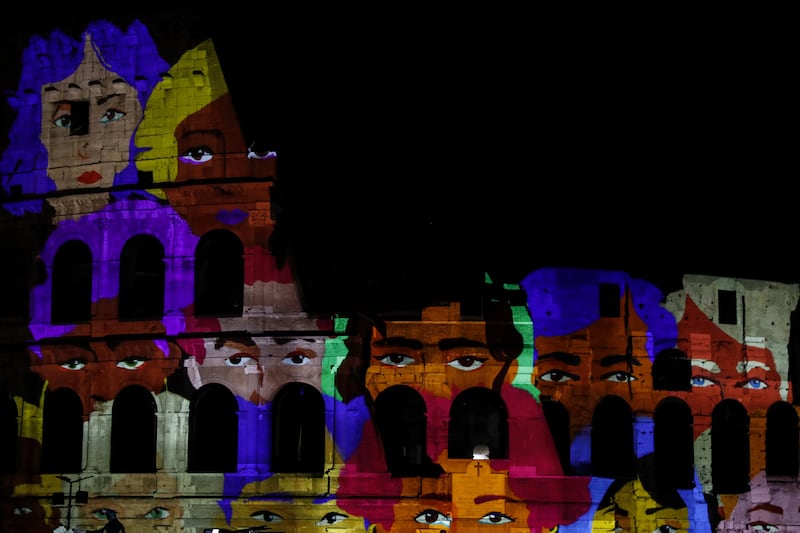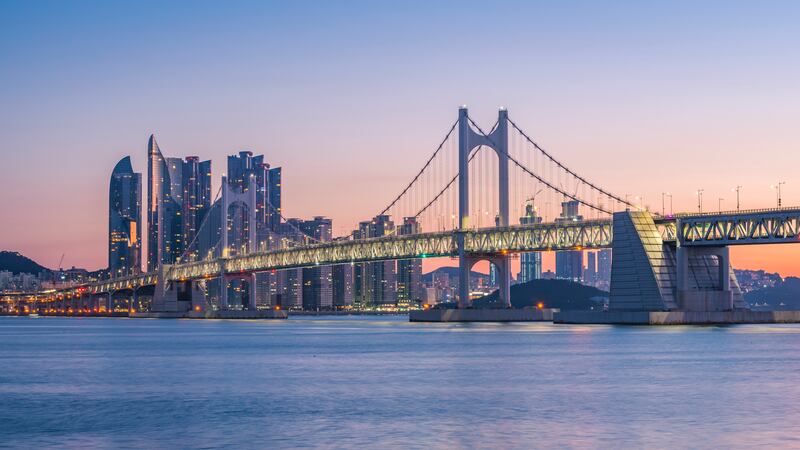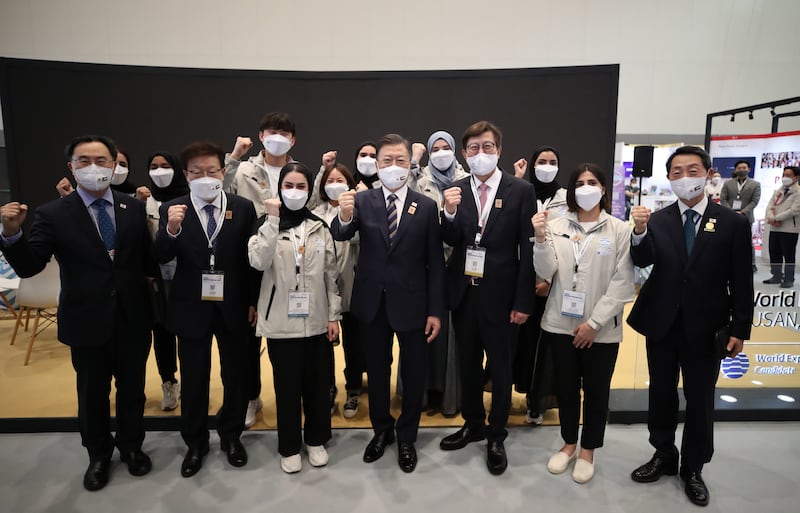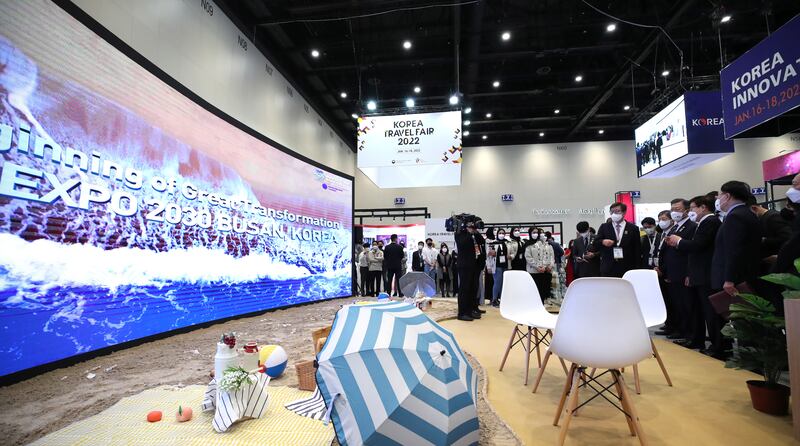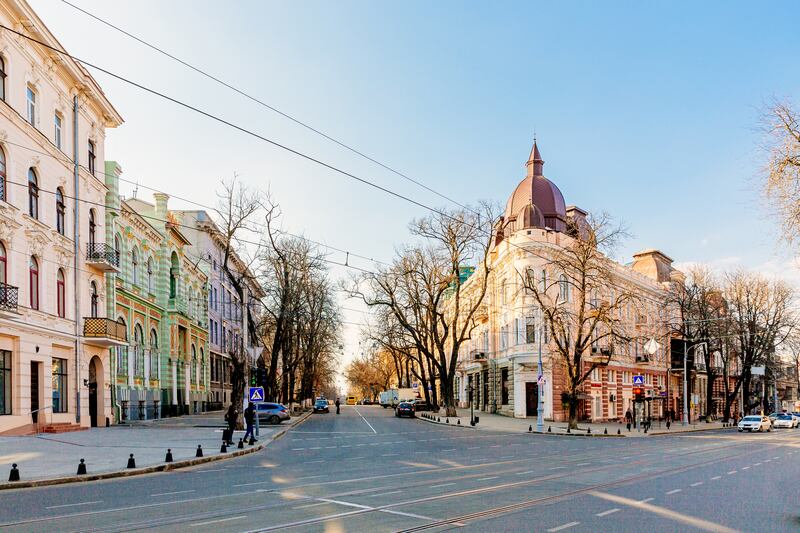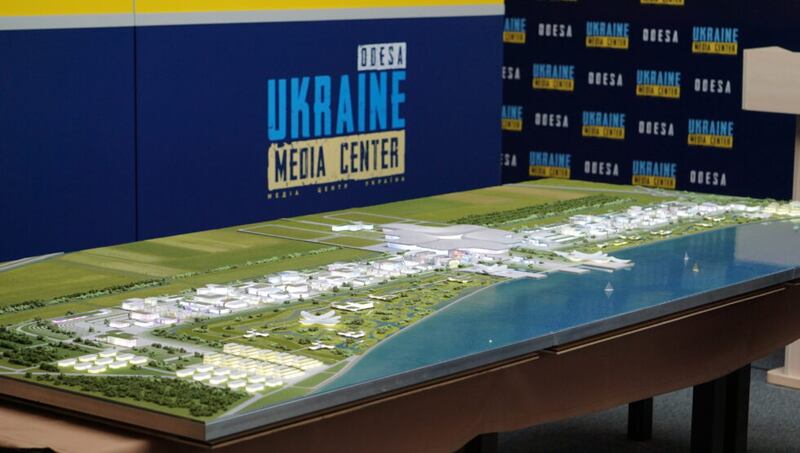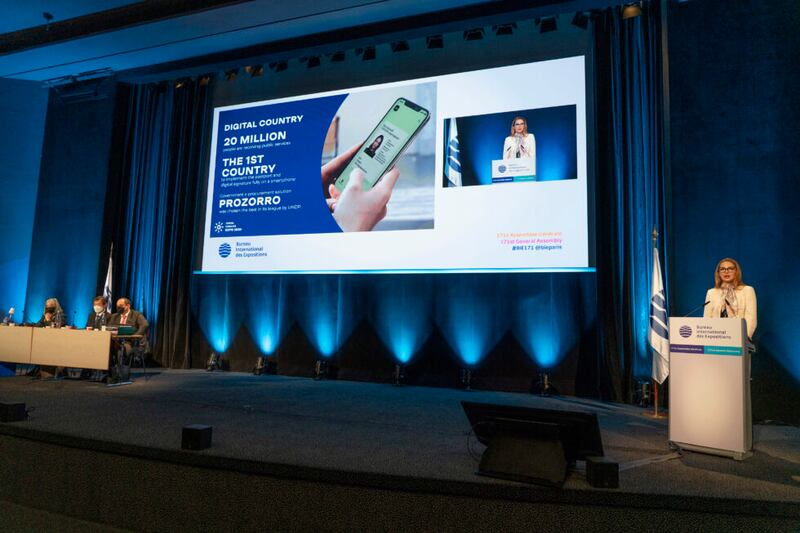The country that will host the World Expo 2030 will be decided when 179 nations have their say in a secret ballot later this year in Paris.
The nations are members of the BIE, the Bureau International des Expositions, an intergovernmental organisation that oversees and regulates World Expos.
They will meet in November when the voting takes place during a general assembly session.
The contest is between Saudi Arabia, Italy, South Korea and Ukraine.
There is keen interest in the region to find out whether Riyadh will win the bid ahead of Rome, Busan and Odesa.
If Saudi Arabia wins the bid, the megaevent will return to the region after Dubai first brought the World Expo to the Middle East and North Africa region.
The previous World Expo was held in Dubai from October 2021 to March 2022 and recorded more than 24 million visits as the world emerged from the coronavirus pandemic.
The next World Expo will be held in Osaka, Japan under a giant wooden canopy.
Expo's main organiser
The BIE, with its headquarters in Paris, was founded in 1928.
The organisation's mission is to ensure high standards, relevance and success at the world's fair.

The themes broadly cover co-operation, innovation and education.
Members have the responsibility to choose the country that will host the future expo and a senior team from the BIE regulates the event.
BIE officials regularly visit the host country to check on preparations, examine the site and assess if the event will be delivered on schedule.
The BIE also has the power to arbitrate in the event disputes arise between countries competing to host an exhibition or between participants and the organisers.
What is a World Expo?
The first World Expo, known as the Great Exhibition, took place in London in 1851. The plan was for a gathering of nations to find answers to the challenges of the time.
More than 25 countries participated in the first expo under the theme "The exhibition of the works of industry of all nations".
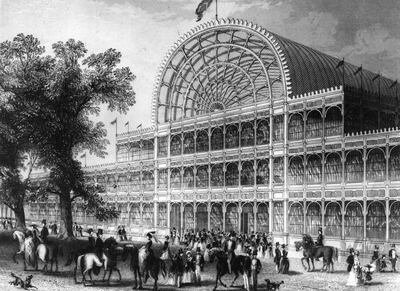
For that first event, held in the middle of the Industrial Revolution, the UK aimed to show progress in the field of technology.
The first expo was housed in Crystal Palace, a massive iron-and-glass structure specifically built in Hyde Park for the event.
The structure was later disassembled and rebuilt in south London where it was used as a concert hall, museum and botanical garden before it was destroyed in a fire in 1936.
All world’s fairs come with a caveat that the pavilions must be dismantled or reused.
Organised every five years, the fairs cover universal themes and last for six months
The main purpose is to boost knowledge, inspire technological breakthroughs and nurture human aspiration.
After the 1851 fair, the concept gained traction with more countries keen to host the megaevent.
Selection of the host
There are 179 member countries of the BIE and each is represented by a maximum of three people, appointed by their government.
The general assembly is the decision-making body and each country has one vote.
The main function of the general assembly includes selection of the host of future expos, discussion and adoption of regulations to organise an expo and approval of the budget.
The general assembly is chaired by a president elected via ballot for two years. The current president is from South Korea.
How does a country apply
Several years of exhaustive planning are required, from the application to planning the legacy after the event ends.
A country must first submit a letter to the BIE expressing intent to be a candidate, mentioning the theme and proposed city.

The team must have the full support of its government.
A nation should submit an application between six to nine years before the planned opening of the expo.
After receiving the request, the BIE begins a six-month countdown during which other nations can apply.
At the end of the six months, the candidate list is closed.
After the six-month candidature phase, all countries are required to submit a detailed dossier. This document is used as the base for inquiry missions to each country organised by the BIE.
The missions check the viability, political and social climate and support of the federal government, local authorities and the public for the project.
Visiting officials assess the effectiveness of the theme, the project’s objective, infrastructure in place and communication strategy.
The size and location of the planned expo site, content of the pavilions, operational plan, expected number of visitors, accommodation for participants and staff, financial feasibility, cost of participation and use of expo structures after the event ends.
Results of the inquiry missions are reviewed by the BIE executive committee that forwards viable projects to the general assembly.
Election to be the chosen one
Candidate countries conduct international campaigns to build support.
During BIE general assemblies, the countries present the status and progress of the project to member states.
The members finally elect the host in a secret ballot.
The host nation is elected if the country secures a two-thirds majority of the votes of members present.
If no candidate wins two thirds of the vote, another ballot is organised and the candidate with the least votes is eliminated after each round of voting.
Once there are only two candidates left, a simple majority is required to elect the host nation in the final ballot.
Why host a World Expo
From 31 countries that formed the BIE in 1928, the organisation has grown to 179 members, reflecting the popularity of world fairs.
Expo 2020 Dubai provided a major impetus to tourism, trade and business opportunities and investment into the city and country.
The site has been transformed into Expo City Dubai as part of the legacy plan with key pavilions, such as the Mobility, Sustainability structures and national pavilions of the UAE, Saudi Arabia and India, remaining on site.
The car-free zone has been opened up for residential apartments and villas announced with sustainability as a core principle of the development.
Hotel occupancy grew with guests staying in the emirate for longer periods while arrivals at Dubai International Airport rose 12.7 per cent in 2021.
One in every three visitors was from overseas, with people visiting from 178 countries.
Small and medium businesses flourished as more than 1,300 local businesses won contracts awarded by the Expo organisers.
Construction companies, event organisers, food and beverage outlets were among small businesses that played a vital role in the expo’s success.
